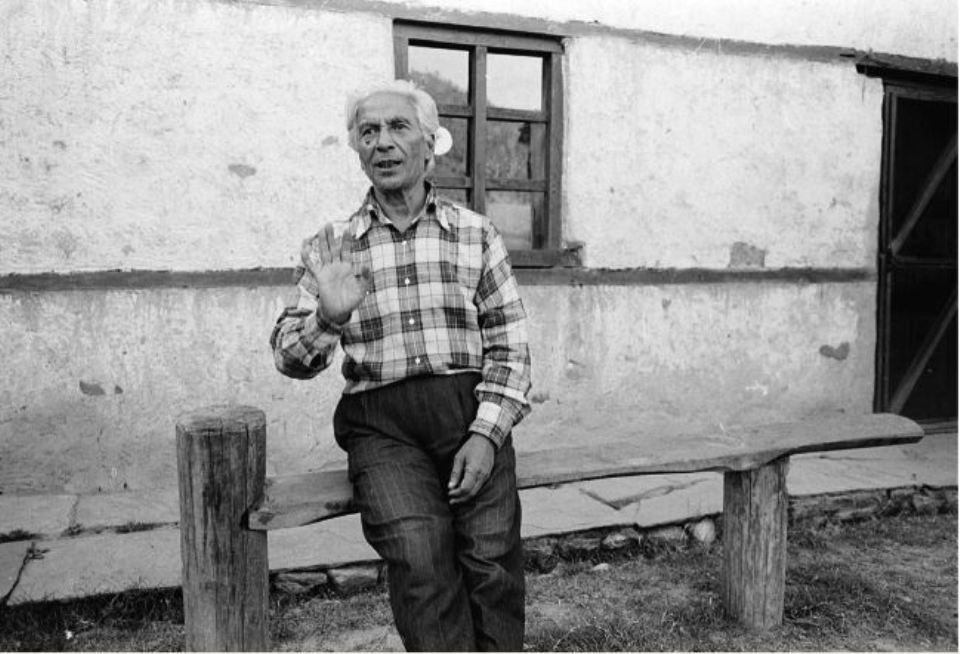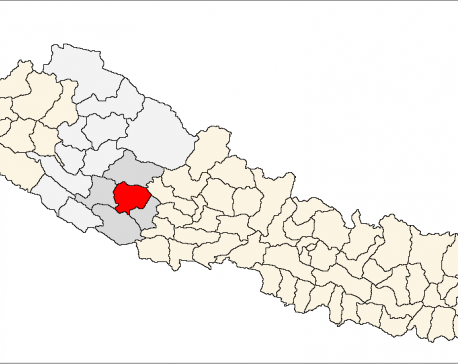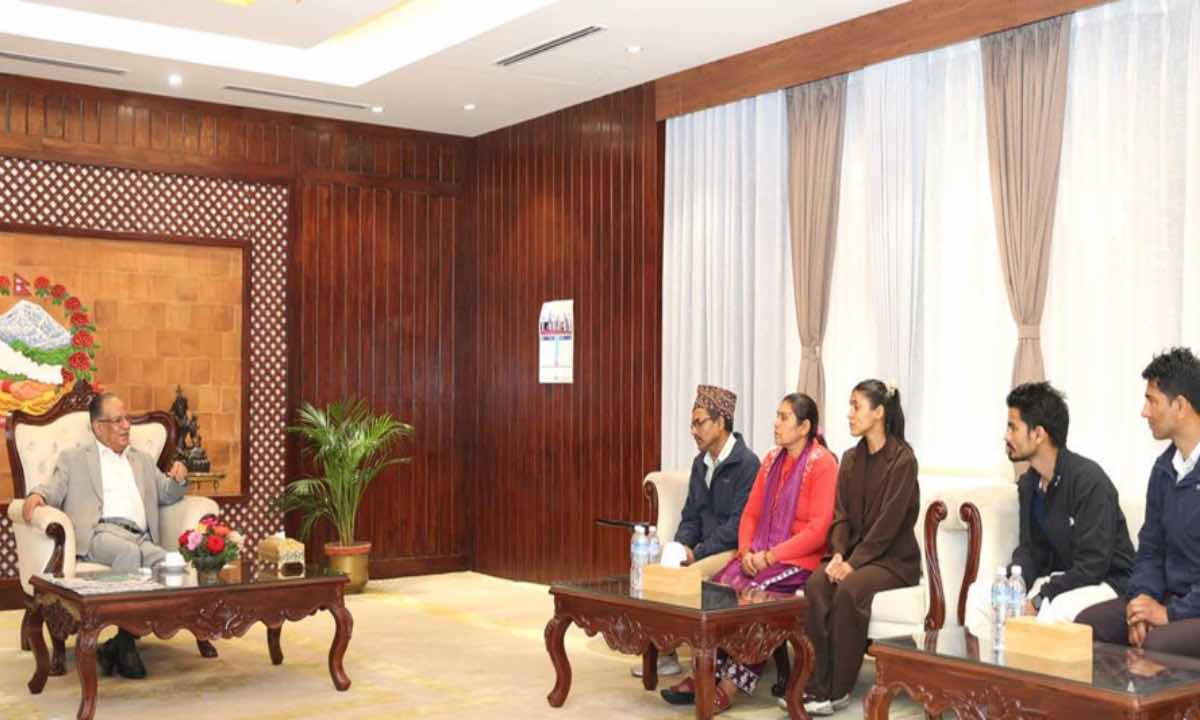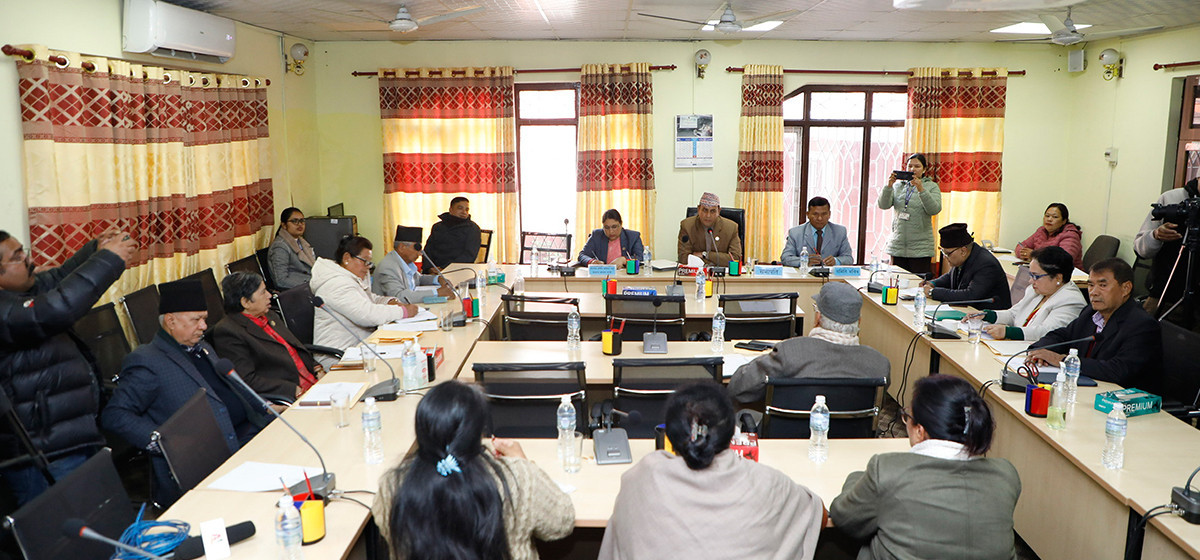
OR

More from Author
The academic height Bista gained within Nepal and in educational institutions he visited in other countries around the world is enviable for many who are
in the academia today
We would have been celebrating 94th birthday of Prof Dor Bahadur Bista on Magh 4 (January 18) if he had not gone missing in 1995. He is known to many as someone who critiqued the prevailing socio-cultural norms and values of Nepali society as enshrined in the value system that was defined by the religious Pundits. He called it “fatalism”. He is also known to some others as a person who talked about caste-ethnic differences so as to ‘disturb’ the tranquility that was supposed to be prevailing in socio-cultural and economic relations and interactions among the hierarchically arranged formation—Brahman, Chhetriya, Vaisya and Sudra people in Nepal.
For many of us who worked with him at the Anthropology Department or the Research Centre for Nepal and Asian Studies (CNAS), he is also remembered as the father of Nepali Anthropology, as a senior colleague who always inspired the young and aspiring scholars to work hard, or as someone who attracted resources from international funding sources and enabled young and energetic minds to seek new knowledge through engagement in research projects.
Critique on society
I had read his book People of Nepal (before I met him) to learn about various castes and ethnic groups in Nepal including Thakali people on whom I wrote my MA thesis submitted to Poona University. When I met him in 1980, just before the start of Dashain holidays, he was the Executive Director of the Research Centre for Nepal and Asian Studies (CNAS). I learned from him that the syllabus for the proposed MA degree program in Anthropology and Sociology was being prepared by a team of experts led by him as the Chair of the Subject Committee that was coordinated by Prof Surya Lal Amatya (who was the Dean of Humanities and Social Sciences at that time). I also joined the syllabus drafting team toward the end of October 1980—after Dashain-Tihar holidays of 2037 BS.
Bista critiques the education system in his book Fatalism and Development that was there in Nepal until about 1980s. In reality, he himself was also a part of that very system—as a Head Master (during the 1950s) of a school in the beginning of his career and then as an Executive Director of CNAS (1970s-80s) and Head of the Department of the MA degree program (1981 onward) in Anthropology and Sociology at Tribhuvan University. In between, during the 1950s-60s he had also conducted ethnographic field research as a Research Assistant to a British scholar as well on his own initiatives examining issues and problems that intrigued and interested him.
As a senior Anthropologist, he suggested as to what kind of anthropology Nepali academia ought to follow and practice. He was in favor of an applied and development oriented anthropology of and for Nepal. We did follow this idea and as a result we have many of our graduates working in different sectors within Nepal. Presently a balanced approach is also being considered.
The academic height Bista gained is enviable for many. He set the example of a true teacher and researcher. He came to Tribhuvan University in the late 1970s but within a short time he became very popular among his students as well as colleagues. The fame he gained as an intellectual and academic person stands tall to this day.
In a way, one could also say that he was lucky—he had obtained a college degree at a time when only a handful of people in Nepal had access to higher education, in particular beyond high school. By 1952, he was working as the headmaster of a girl’s school in Patan. The opportunities to travel and visit different parts of the country and learn first-hand about the prevailing social, cultural and economic diversity was not available to just about any one. He was able to visit many places in Nepal with foreign anthropologists in the 1950s itself.
In his lectures, talks, writings or even while telling stories about the prevalent socio-cultural and economic diversity in the country, he would argue that the prevailing education system in Nepal was not suited to understand the diversity with an open mind and also not oriented toward imparting skills or knowledge. In Fatalism and Development he points out that passing grades or acquiring degrees are “considered more important than acquiring skills or knowledge”. Today, some changes may have come about and the educational programs may have been producing graduates with skills and knowledge also. But now the problem is that many of those seem to disappear from Nepal and end up working in foreign countries—as teachers, scientists, medical doctors, technical experts, and so on. I am inclined to think along Bista’s way and suggest that we look for ways to engage young and energetic people here in Nepal and have them contribute to the progress of our country and its people.
Love for research
Dor Bahadur Bista was quick to diagnose the socio-economic problems and come up with practical ways to fix them. Let me give an example. Bista had a small house on top of Kirtipur hill. This was his place of retreat whenever he was working on some serious research writings. I remember walking uphill with him and other colleagues of my department whenever we were to discuss some practical issues related to course work or research projects. Bista told us he lived there for several days on occasions.
While spending time in this area, Bista was able to identify one very critical problem. He noticed that while adult members of some ‘craftsmen’ group went away “to work” during the day time, their small children were left behind playing with dirt in the vicinity of their homes. He also found out that the local schools would not enroll them because of their family’s ‘untouchable’ status. That is, they were denied access to education! All this happening in front of the oldest and largest university of Nepal was shameful. Bista soon (in 1980s) managed to establish a special school in Kirtipur for those children. Thanks to the anthropologist, visionary and revolutionary Bista, that particular school is well established and is well regarded by everyone today.
The academic height Bista gained within Nepal and in educational institutions he visited in other countries around the world is enviable for many who are in the academia today. He may have spent only about two decades at Tribhuvan University as a Professor, but he has left a deep impression there. His fame as an avid researcher and devoted teacher made him very popular among his students and colleagues. We still have fond memories of him and remember how nicely he told us about strange sounding cultural practices, events, rituals, etc based on his own observations in remote villages in different regions of Nepal.
I wonder what Bista would have said about today’s plight of Nepali youths migrating in ever increasing numbers to foreign countries in search of better opportunities—for studies as well as to find gainful employment. Youths are going away because the country’s economic, social, political, and academic conditions can’t hold them here at home. Looking at this issue in a wider context (of brain drain, families spending their already scarce financial resources on people who will serve other countries etc.) should make us think about what it can do to the future of Nepali people. What would have Bista told us to do? The onus is on us now to find the solutions.
The author, retired Professor of Anthropology from Tribhuvan University, had worked with Dor Bahadur Bista during the 1980s
You May Like This

Status of most of Rolpa's missing still unknown
ROLPA Dec 20: A total of 37 people in Rolpa have remained unaccounted for since mid July this year, said... Read More...

Kin of missing engineer unhappy with police probe
KATHMANDU, Sept 13: Kin of Bishal GM (Gharti Magar), a Pulchowk Engineering College graduate who had gone missing on August 14... Read More...

Man goes missing in river
SALYAN, July 2: A man went missing in a river in Kalagaun-5, Bajhakhola. ... Read More...




Just In
- Man dies in motorcycle accident in Dhanusha
- Nepal face early setback as four wickets fall in powerplay against UAE
- Australian unemployment rate rises to 3.8 percent in March
- Gold price increases by Rs 700 per tola
- Fire destroys wheat crop in Kanchanpur, Kailali
- Bipin Joshi's family meets PM Dahal
- State Affairs and Good Governance Committee meeting today
- Gold items weighing over 1 kg found in Air India aircraft at TIA















Leave A Comment